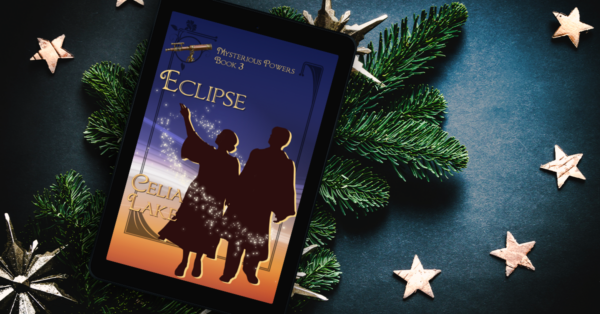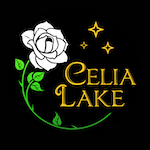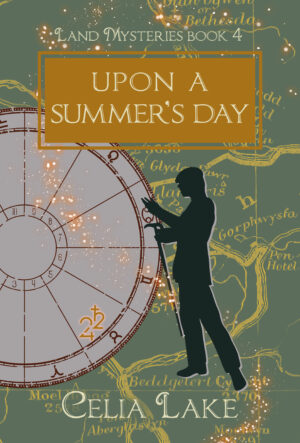(Look, I couldn’t resist the T.S. Eliot reference, I’m only human.)
To be more serious, the names of characters are something I spend a lot of time thinking about. I got a great reader question about it this week, and that makes it a wonderful time to share some of how I do this.
To be honest, there’s a lot of staring at my list of names and sighing a lot. But I also have established patterns that help me sort out what I’m doing with the names.
(As a note, links to character names in this post will go to their WorldAnvil pages so you can see where they appear most easily.)

Basic principles for names
Fundamentally, when I’m choosing names, especially for major characters, I want a name I’ll be able to spell reliably. (Sometimes I guess wrong: the heroine of Shoemaker’s Wife is Clara, and the number of times I have typed Clary instead is not small.)
I also want a name that reflects some aspect of the story or their character, ideally. That can be a hint at their goals, what their family hoped for them, or something else of the kind. (Adam is Adam because I couldn’t resist it given the apples.)
I also want a name that reflects where they come from, and what their family hopes were (since that’s often a big factor in naming). Sometimes it’s family traditions, sometimes it’s a name with a particular meaning to steer the child in that direction.
Sometimes characters are just very insistent about what their name is.
Finally, on a practical level, I want a name that’s easily distinguished from other characters in the same book. Orion in Eclipse was almost named Theran until I looked at the page, realised how similar it was in shape to Thesan, and knew that would be a bad idea.
(I do have some overlaps if you move between books, but hopefully Richart Hase and Richard Edgarton will never actually be in the same room at the same time…)
Inspiration and ideas
A while back, I went through a lot of name lists and built a massive list of names. When I need one for a minor character, I’ll skim that and see what stands out. It includes a lot of Latin-derived names, more obscure Victorian and Edwardian names, and those relating to things like colours, astronomy, mythology, and other similar topics. I discard names I think have too much modern association (Jennifer!) or that I just don’t want to have on the page for some reason.
(Someone asked about Asenath recently, and I’m pretty sure it migrated onto that list from a Biblical names list, or one of the “names that have fallen out of fashion” list.)
If I’m looking for a name with a particular source, origin, or meaning, I rely heavily on BehindTheName.com, a fantastic site that will let you search or browse on a wide range of criteria. (Click on the magnifying glass next to the search bar at the top for options.) I’ll sometimes do searches elsewhere to confirm information, but that’s where I do a lot of browsing.
Naming culture and customs
One of the things about names is that they go through customs and fashions, often in cycles. The popular names in a given year often jump back two or three generations: not the names our parents used, or maybe our grandparents, but our great-grandparents. (And of course, there are perennial standbys.)
And of course, I’m writing in a world where some families have particular magical and ritual customs, and that definitely includes naming.
The First Families like their Latin names
The First Families proudly trace their line of descent to the Romans, in some way, shape, or form. Their naming patterns often follow those traditions, with a noticeable preference for Latin, Latinate, or other classical names. This doesn’t necessarily mean this is what they go by!
Giles (in Wards of the Roses and Country Manners) is a great example. Formally speaking, he’s Aegidius, and he refuses to use it. His parents are Tiberius and Delphina, and his brother is Caesarius, so you can see where this comes from.
Other examples of this naming pattern include:
- Proserpina (who goes by Pros)
- Galen
- Cadmus (his family have a particular affiliation with Thebes and its mythology)
- Cyrus
- Thalia (and her siblings Phoebe and Pierus)
The Second Families value their heritage
They trace their background back to Egypt and related regions (especially Ptolemaic Egypt).
Ibis (in Magician’s Hoard and Chasing Legends) is properly Thutmose, but uses Ibis as a name less likely to be mangled in English. It’s also a particular sort of play on names: Thutmose means, roughly, ‘born of the god Thoth’ (or Djehuty). The ibis is Djehuty’s bird.
Alexander (and his brother Phillip) have names that echo in Egyptian history (Alexander the Great and his father, Phillip of Macedon), but that also work well in French and in English). It’s a very particular naming choice, for Egyptian and French parents.
(Alexander does also have an Egyptian name, but he has what he feels are excellent reasons for not using it. It’s discussed in the forthcoming Nocturnal Quarry out in the spring of 2023.)
The Third Families love names from French myth and legend.
The Third Familes trace their heritage to France, and many of them have names that anchor particularly in Merovingian lore, or the time of Charlemagne (as well as names that have more generally passed into use in English.)
The most obvious here is Melusina, Roland’s mother. (A novella of her romance with Arthur is coming in mid-December.) Melusine or Melusina is a figure out of legend, a powerful and terrifying spirit of fresh water. A number of mediaeval dynasties (including the Merovingians and the Plantagenets in England) traced their line back to her.
Isembard and his brother Garin’s names come from similar lore – Isembard was the name of a vassal of Charlemagne.
British lore and custom, the Fourth Families
We have quite a few names that come from British folklore or custom, mostly people from the Fourth Families (those who come from Anglo-Saxon, Celtic, or other backgrounds not in the Great Families above.)
These include common English names like
- Rufus (named for his auburn hair, and because it’s a common name in the New Forest area)
- Katherine (who goes by Kate)
- Martin
- Thomas
- Adam
- Elizabeth (who is almost always “Mason”, her last name.)
- Rosemary
- Dilly (who I suspect has a very different formal name, but she hasn’t told me what it is. Her parents are serious social climbers. She’s been Dilly since she had any choice in it.)
- Anna
I have an incredible tendency to name minor male characters George (there were, at one point, four men in Outcrossing named George until Kiya glared at me and I fixed that. In my defence, it’s an incredibly common name in the UK.) I finally named George in Fool’s Gold to get it out of my system in a particular way (given who and what he is), and that’s worked very well.
There are also names common to particular regions or languages:
And of course, some characters have family names from other cultures. Golshan is a Persian name that means rose garden (as Golshan contemplates at one point), and Rathna is a Bengali name that means jewel or precious stone.
(As a note, I was asked recently how it’s pronounced: Rahth-na, with a sort of aspiration on the th, as I understand it.)
Other sources of names
Sometimes names just sound right. Sometimes I’m going for the sound or a meaning, and hit on something that works.
- Richard is a good solid English name, if not particularly Latinate. (His father was Antonius.)
- Hugh has origins in a number of places, suitable to a family associated with transport and ships.
- Alysoun is a much older spelling of the more common Allison or Alison.
- Castalia needed a name that sounded posh for business purposes, but she is very much Cassie at other times.
The Cousins tend to names with strong folklore associations or that come out myth and legend. We have Vivian, who shares a name with the priestess of Avalon in Arthurian, and Robin, who is indeed rather puckish in nature. Other names for the Cousins come from fairly obscure name lists.
The Scali as a family have a preference for Italian names, in keeping with their origins, though it’s not formal (and Beatrice pronounces her name in the English manner, not the Italian one, usually.)
Fads, fashions, and eternal names
Names sometimes go through fads or fashions. Around 1890-1905, there was a particular fad for Etruscan derived names, because of some ongoing excavations that brought out name inscriptions. Ferry (Feronia) gets her name from this fad, as do Thesan and her siblings (Ilithia or Lia, Orcus or Or, Sethans or Seth, Aphana or Allie, Cel.) Their youngest brother is outside this fad, and is Archibald or Archie.
There’s also a mentioned fad for the name Iseult at one point.
Similarly, as various characters say at points, “Every family has an Orion.” Star and constellation names are reasonably common, and Orion is one that keeps showing up, never the most common in a year, but always present and needing some disambiguation. (Orion Sisley will be showing up again as a point of view character in the third Land Mysteries novel, for the record.)
Names for other reasons
Sometimes I hit on a name for a specific reason that doesn’t fit any of these general patterns. Linta, one of the teachers at Schola is a Finnish variant on Linda. Mizar, Thesan’s mentor and predecessor is a star name.
Roland’s father’s family has a preference for hero names (his father, of course, is Arthur).
Rhoe chose her name (she started life as Alexandra, and was glad of the chance to pick something else when she took a name as a committed priestess). It means ‘stream, river, or flow’. All very suitable in her line of work.
Geoffrey Carillon and his older brother Temple’s names are – look, those are just their names, okay? I’m not sure why, entirely, especially Temple. I’m just clear that’s what they’re called. (The question of Geoffrey’s name and how he feels about it is a significant subplot in Best Foot Forward.)
Finally, there’s Gabe. When I started writing The Fossil Door, I realised I wanted a name that could be ambiguous as to gender (the majority of the Penelopes are women). I was in the process of editing Pastiche (where Gabe is born), but realised that if I adjusted dates slightly, he could be Richard and Alysoun’s son. He was already named Gabriel, which could be heard as Gabrielle quite easily.
That’s a quick tour through names and some of their reasons. If you’d like to know more about specific names not mentioned here, or about last names (which are mostly less interesting), let me know, and I’m glad to write a followup.

